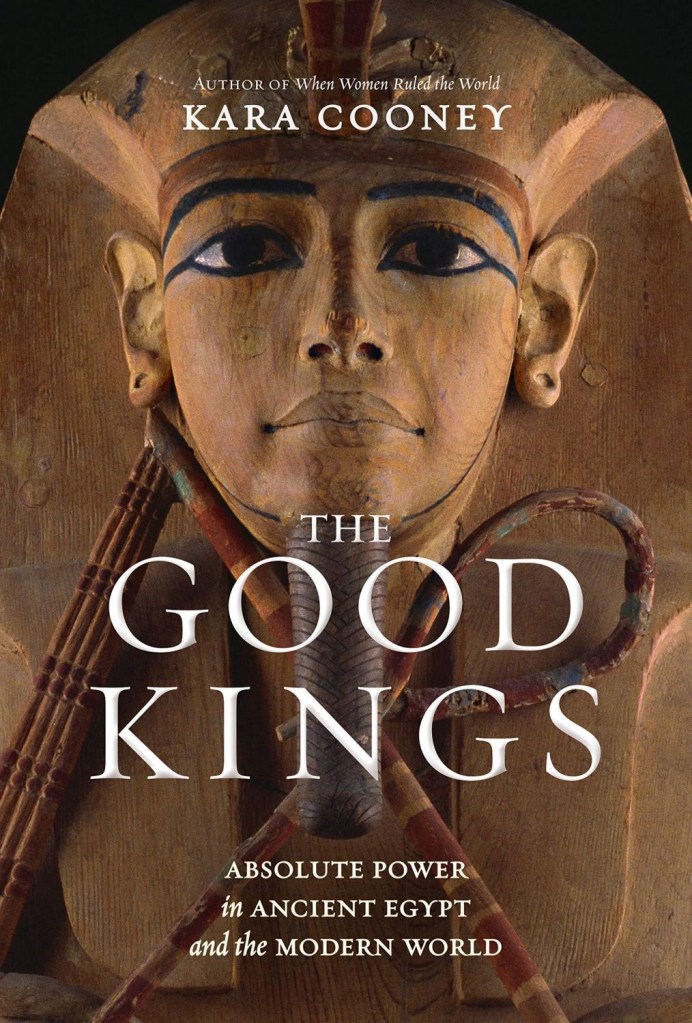Ancient Egypt Teaches Us a Thing or Two About Modern Politics in National Geographic’s ‘The Good Kings’ [REVIEW]
November 16, 2021 4 Comments

Every time I visit the Metropolitan Museum of Art in New York City, which quite literally has so much to see you can spend days wandering around within its labyrinthine halls, I inevitably find my way to the Sackler Wing to stare at the pharaonic Temple of Dendur which was built by Caesar Augustus in 10 B.C. in Lower Nubia. While it is relatively small compared to, say, the Pyramids of Giza, it is still the closest I have ever gotten to actually going to Egypt. And yet I am always compelled to visit it, possibly because I am fascinated by the history, power, architecture, artistry, and mythology of the Egyptian culture. After all, whether you’re an avid Bible reader or merely a fan of classic films like The Ten Commandments, the foundations of our faith all seem to lead back to ancient Egypt. Thankfully, I’m not alone in my fascination with this culture. UCLA’s Professor Kara Cooney is also a “recovering Egyptologist,” and in her latest book for National Geographic, she pulls back the curtain on five of The Good Kings to examine their power and how it continues to touch our lives even now.
Reading this book, I couldn’t help but be transported back to the numerous college classes I took regarding ancient civilizations. So many of the texts we read were little more than a dry recitation of historical fact, but I was fortunate to have a professor who brought those cultures to vibrant, vivid life every day we met for class.
Cooney has that same knack. She is not the dusty old professor who lulls you to sleep each time she opens her mouth. Rather, from page one, readers are destined to feel like they are attending a Ted Talk about pharaohs Khufu, Senwosret III, Akhenaten, Ramses II, and Taharqa. She actually engages us as readers, and makes us sit up and pay attention. Because not only does she infuse each of these figures with life, but she has us hanging on her every word as she makes us see the men for what they were, imperfect leaders with an insane amount of power.
She uses ancient clues found in monuments and hieroglyphics to sew together their stories and ultimately reveal how their cultures and governments worked, and why people gave over absolute control to one man and his cronies. Where Hollywood has glamorized these figures in years past, she looks at them without the rose-colored glasses and discusses the oppression that was frequently doled out to the people they ruled, and why they always sought to maintain the wide chasm between classes and made each sect of the population live by a very strict set of rules.
What Cooney also does here, with candor and grace, is make blatantly clear the parallels between the Egyptian kings of yesteryear and today’s power-hungry leaders. As a result, she makes us ponder just what the future might bring if we fail to learn from the mistakes of the past.
Although I’m an avid reader, I also love watching a good documentary. And with The Good Kings, Cooney has somehow managed to create both a timely treatise and a movie for our mind, both of which spur us on to become critical thinkers who strive to see people for who they were and are, no matter how fascinating they may be.
ABOUT THE AUTHOR

Kara Cooney is a professor of Egyptian art and architecture at UCLA. Her academic work focuses on death preparations, social competition, and gender studies.
She has appeared as a lead expert on the popular Discovery Channel special The Secrets of Egypt’s Lost Queen and produced and wrote Discovery’s Out of Egypt.
The author of two previous books, When Women Ruled the World and The Woman Who Would Be King, Cooney lives in Los Angeles.
For more information, visit her website, like her on Facebook, and follow her on Twitter, Instagram, or LinkedIn.

One of the world’s leading nonfiction publishers, National Geographic has published more than 1,700 titles, featuring such categories as history, travel, nature, photography, space, science, health, biography, and memoir.
A portion of its proceeds is used to fund exploration, conservation, and education through ongoing contributions to the work of the National Geographic Society.
To find out more about Nat Geo, visit NationalGeographic.com, like them on Facebook, or follow them on Twitter, Instagram, and Snapchat.
THE GOOD KINGS: ABSOLUTE POWER IN ANCIENT EGYPT AND THE MODERN WORLD
By Kara Cooney
400 pp. National Geographic. $28.
Purchase The Good Kings direct from Jathan & Heather Books or from one of these other fine online retailers: Amazon, Barnes & Noble, Books-A-Million, Half Price Books, Hudson Booksellers, IndieBound, Powell’s, Target, or Walmart.
The Good Kings is brought to you in association with TLC Book Tours.





I had one history teacher who was able to bring the past to life, and I’ll never forget what I learned from him! I think it’s a gift to be able to recant history in that way.
We love great teachers, especially those that are enthusiastic about their material and care about their students. But one who inspires and can bring history to vivid life is something extra special. Glad to hear you had one of those too!
Funny Jathan I’m on my way there now…. Via Atlanta then Paris… LOL
Sent from Yahoo Mail on Android
Have a great time and be careful! Looking forward to hearing about your adventures and seeing your photos. ☺️